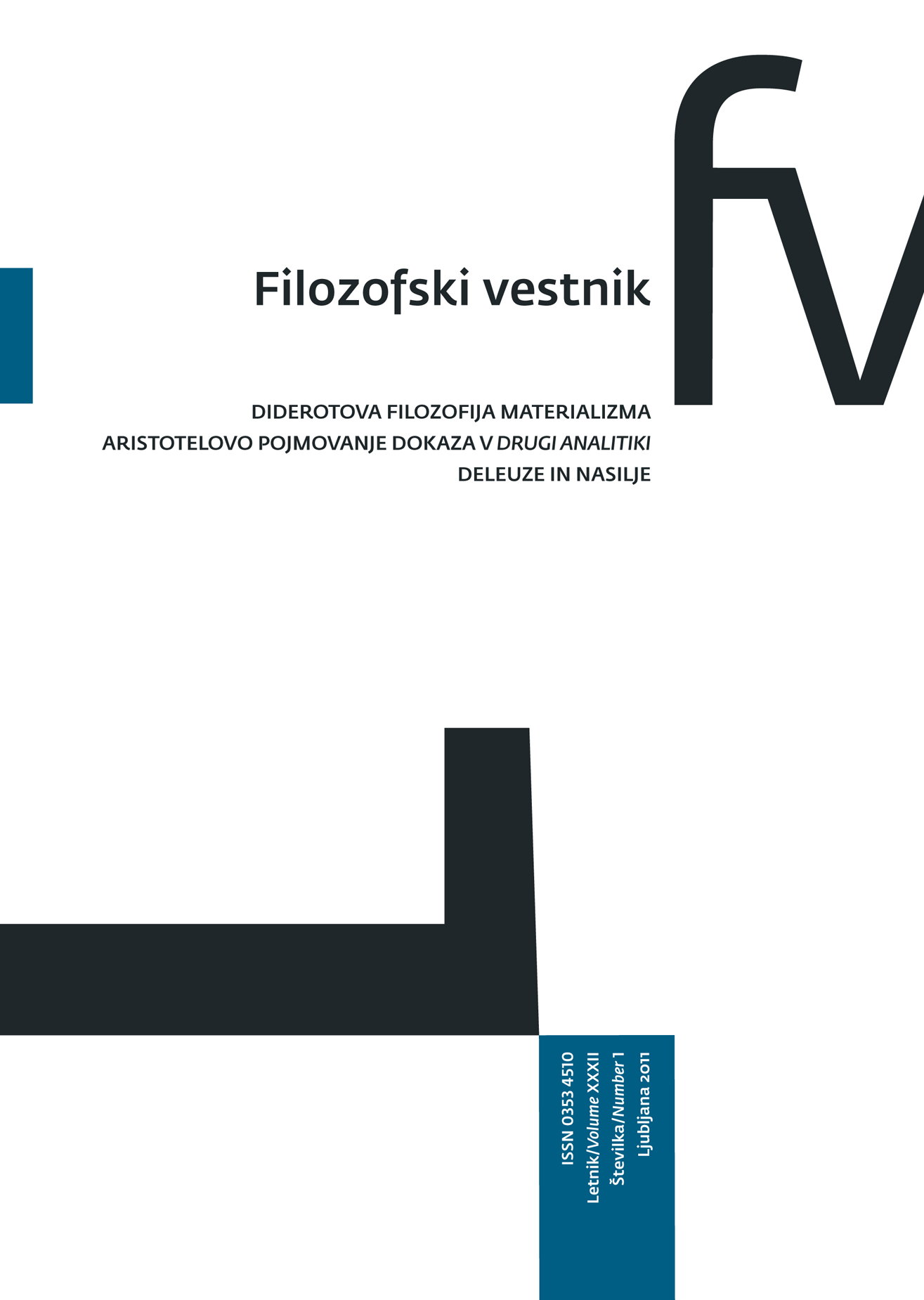Deleuze, kritika nasilja
Ključne besede:
zlo, nasilje, spinoza, Nietzsche, Deleuze, sodba, vojni stroj, clausewitz, vojnaPovzetek
Prvi del teksta je posvečen umestitvi problema nasilja pri Deleuzu. Skozi Spinozovo in Nietzschejevo sprevrnitev problema zla ter nasilja tekst pokaže v čem sestoji sprevrnitev sistema sodbe, izpostavi pa tudi problematičnost politične nedoločenosti pojma nasilja. Drugi del se loteva političnih razsežnosti problema nasilja preko analize Deleuzove in Guattarijeve teorije vojnega stroja in Clausewitzove analize vojne. Medtem ko za Clausewitza vojna služi državni politiki, to pa zato, ker sama ni politična, pa za Deleuza in Guattarija vojni stroj vselej nastopa kot bežiščnica od politike, od državne politike, sam pa ni izčrpan ali določen z njo. V sedanjem sistemu je država izgubila nadzor nad vojnim strojem, slednji pa za svoj predmet nima več same vojne. Vojni stroj deluje preko politične ekonomije, v medprostorih samih družb se manifestira kot globalni varnostni red in kot imanentno razvitje same kapitalistične ekonomije. Ideja, da je vojni stroj posvečen »globalnemu miru« nas ne sme preslepiti v pričakovanje vse večje pacifikacije ali zatona nasilja – globalno nasilje in nestabilnost sta notranja svetovnem vojnem stroju in ne prekinjata svoje vladavine oziroma pravila.Prenosi
Podatki o prenosih še niso na voljo.
Prenosi
Objavljeno
2016-02-06
Kako citirati
Krtolica, I., & Silbertin-Blanc, G. (2016). Deleuze, kritika nasilja. Filozofski Vestnik, 32(1). Pridobljeno od https://ojs.zrc-sazu.si/filozofski-vestnik/article/view/4163
Številka
Rubrike
Deleuze in nasilje
Licenca
Avtorji jamčijo, da je delo njihova avtorska stvaritev, da v njem niso kršene avtorske pravice tretjih oseb ali kake druge pravice. V primeru zahtevkov tretjih oseb se avtorji zavezujejo, da bodo varovali interese založnika ter da bodo povrnili morebitno škodo.
Podrobneje v rubriki: Prispevki





